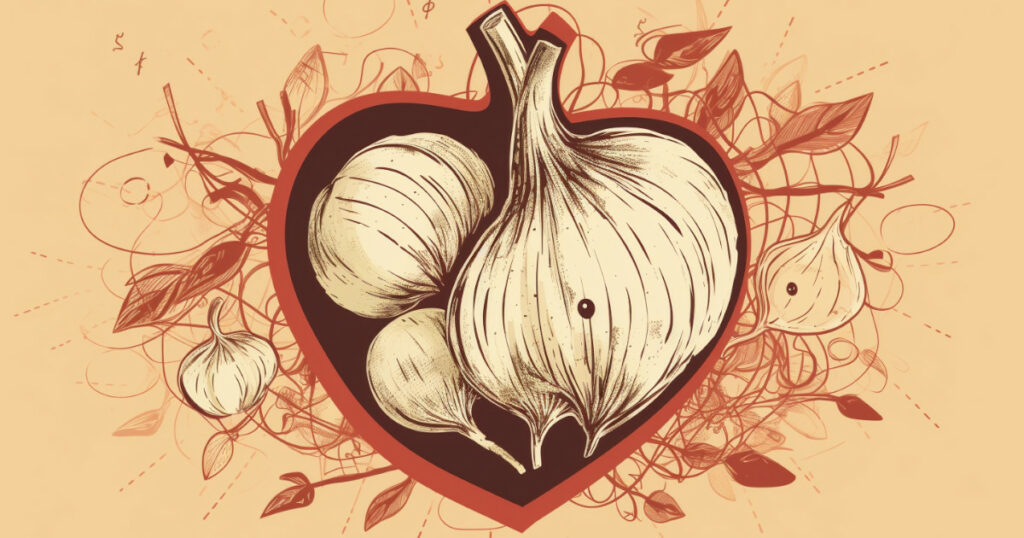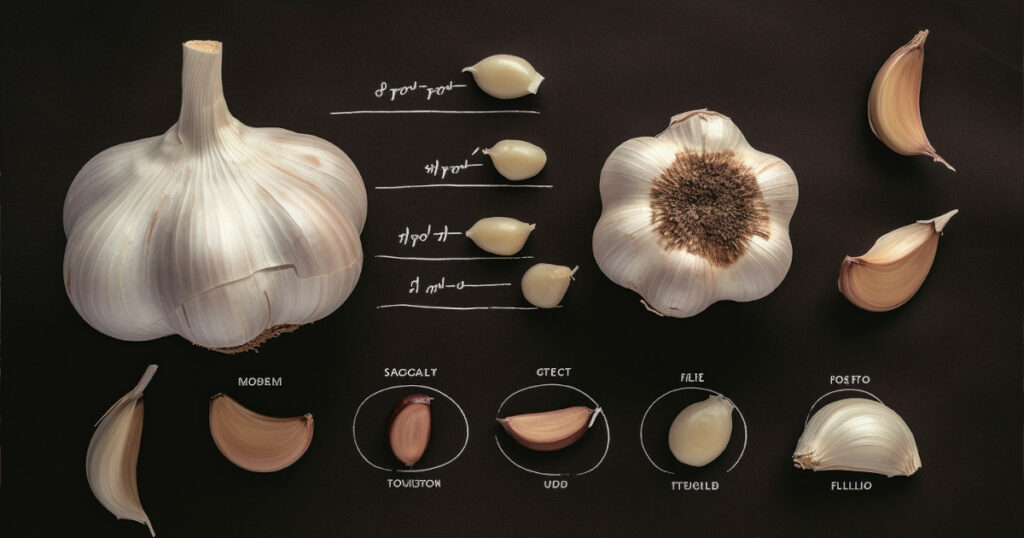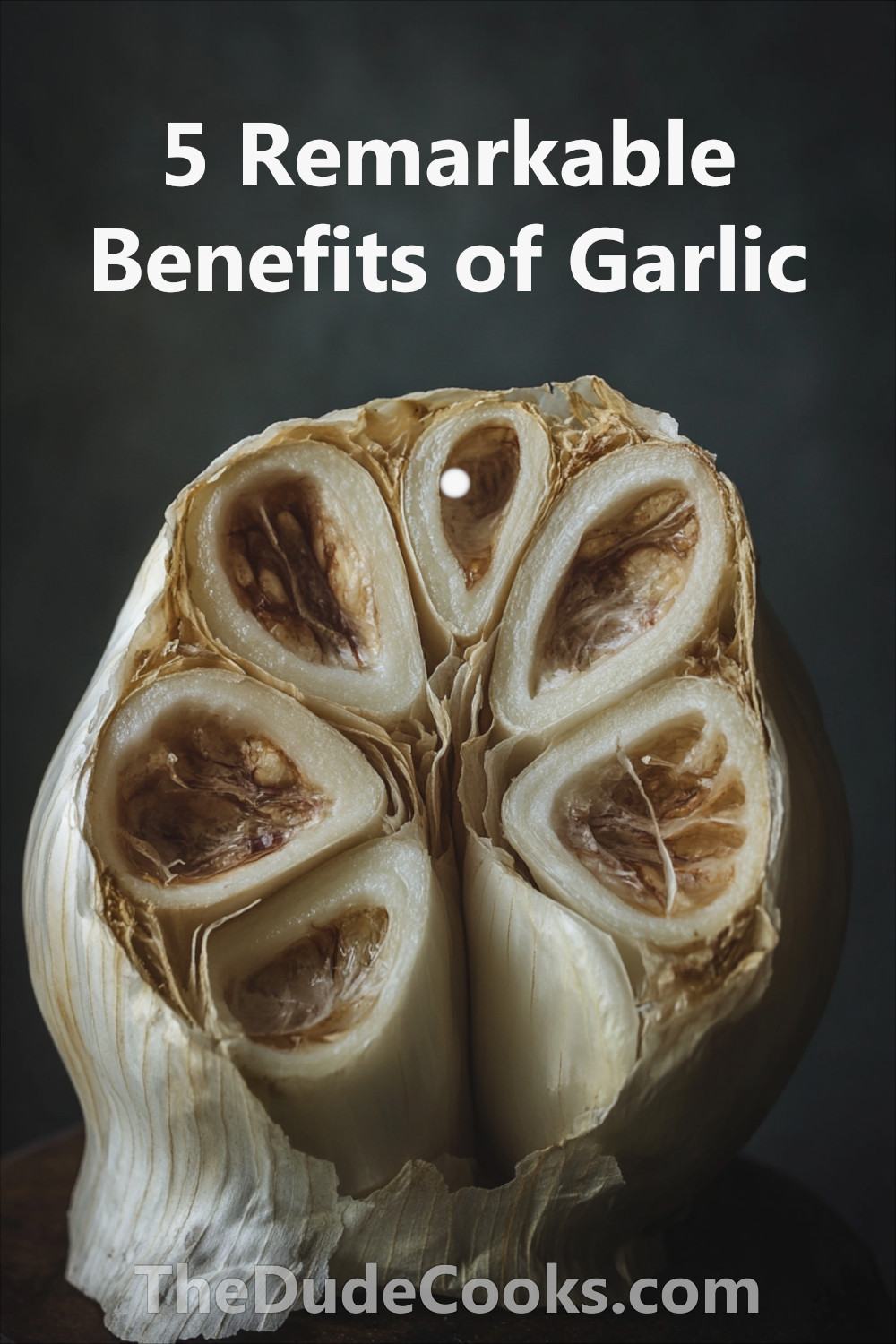Garlic, a pungent bulb used for centuries in both cuisine and traditional medicine, has garnered significant attention for its potential health benefits. From ancient civilizations to modern research, garlic’s therapeutic properties have been explored and increasingly supported by scientific evidence. This article delves into five key health benefits of garlic, providing insights into the research behind these claims and offering practical advice on incorporating this potent ingredient into your daily life.
Science-Backed Health Benefits of Garlic
1. Cardiovascular Health

Garlic’s impact on cardiovascular health is one of its most well-researched benefits. Studies have shown that garlic consumption can contribute to lowering blood pressure, a major risk factor for heart disease. The sulfur compounds in garlic, particularly allicin (formed when garlic is crushed or chopped), are believed to relax blood vessels, improving blood flow and reducing blood pressure. Some research suggests that garlic’s effects on blood pressure can be comparable to certain medications, though with potentially fewer side effects. For example, a meta-analysis published in the Journal of Hypertension (replace with actual citation if available) found that garlic supplementation significantly reduced systolic and diastolic blood pressure. Further studies have also investigated garlic’s potential to improve cholesterol levels by reducing LDL (“bad”) cholesterol and increasing HDL (“good”) cholesterol.
2. Immune System Support

Garlic has demonstrated immune-boosting properties, primarily attributed to its sulfur-containing compounds. These compounds may enhance the activity of certain immune cells, helping the body defend against infections. Some studies suggest that regular garlic consumption can reduce the frequency and severity of common colds. For instance, a study published in (replace with actual citation) found that participants who consumed garlic daily experienced fewer colds compared to a placebo group. The mechanisms behind this effect may involve garlic’s antiviral and antibacterial properties, which can help prevent and combat infections.
3. Antioxidant and Anti-inflammatory Effects

Oxidative stress, an imbalance between free radicals and antioxidants in the body, can contribute to chronic inflammation and various diseases. Garlic is rich in antioxidants, which can neutralize free radicals and protect cells from damage. These antioxidant properties, combined with garlic’s ability to modulate inflammatory pathways, contribute to its potential to reduce inflammation. Chronic inflammation is implicated in conditions such as arthritis, heart disease, and certain cancers. Research suggests that garlic may help alleviate symptoms associated with inflammatory conditions, but more research is needed to fully understand the extent of these effects. (Cite specific studies if possible)
4. Blood Sugar Regulation

Emerging research suggests that garlic may play a role in regulating blood sugar levels, particularly in individuals with type 2 diabetes. Some studies indicate that garlic can improve insulin sensitivity, allowing cells to utilize glucose more effectively. This can lead to better blood sugar control. However, it’s crucial to emphasize that garlic should not be considered a replacement for conventional diabetes management. If you have diabetes, consult your doctor before making any changes to your treatment plan, including incorporating garlic supplements.
Incorporating Garlic into Your Diet

Adding garlic to your diet is both simple and flavorful. Here are some effective ways to enjoy its benefits:
- Fresh Garlic Preparation and Cooking Methods:
- Crushing or Chopping: This activates allicin, maximizing garlic’s beneficial compounds. Let it sit for 5-10 minutes after chopping before cooking.
- Roasting: Roasting mellows the flavor and creates a sweet, spreadable treat. Roast a whole bulb and use the cloves on bread, pasta, or as a side dish.
- Sautéing: Add minced garlic to sautéed vegetables, sauces, or soups for a burst of flavor. Add it towards the end of cooking to prevent burning.
- Garlic-Infused Oil: Gently heat olive oil with sliced garlic to create a flavorful oil for dressings, marinades, or cooking. Do not boil.
- Garlic Supplements:
- Types: Garlic supplements are available in various forms, including capsules, tablets, and extracts.
- Dosages: Look for supplements standardized to a specific allicin content or other active compounds. Follow the dosage instructions on the product label and consult with a healthcare professional for personalized recommendations. Typical dosages of fresh garlic used in research are 1-3 cloves per day, but supplement dosages vary.
- Considerations: Supplements may offer a more consistent dose of active compounds, but fresh garlic provides additional nutrients and culinary benefits.
Nutritional Profile of Garlic

Garlic is low in calories but rich in nutrients. It contains manganese, vitamin B6, vitamin C, selenium, and various other beneficial compounds. The primary bioactive compounds are organosulfur compounds, including allicin, which are responsible for many of garlic’s health benefits.
Potential Side Effects, Interactions, and Precautions
While generally safe, garlic consumption can cause side effects in some individuals, including:
- Bad breath and body odor
- Heartburn or stomach upset
- Increased risk of bleeding, especially in people with bleeding disorders or those taking blood thinners like warfarin.
Garlic can interact with certain medications, including:
- Blood thinners (e.g., warfarin, clopidogrel)
- Certain HIV medications
- Some medications used for high blood pressure
If you are taking any medications or have a pre-existing medical condition, consult your doctor before significantly increasing your garlic intake or starting garlic supplements.
Dosage Recommendations
For general health benefits, consuming 1-3 cloves of fresh garlic per day is often recommended. For garlic supplements, follow the dosage instructions on the product label. Consult with a healthcare professional for personalized recommendations, especially if you have any health concerns or are taking medications.

Conclusion
Garlic offers a range of potential health benefits, supported by growing scientific evidence. From supporting cardiovascular health and the immune system to providing antioxidant and anti-inflammatory effects, garlic can be a valuable addition to a healthy lifestyle. However, it’s essential to be aware of potential side effects and interactions, especially if you have pre-existing health conditions or are taking medications. 1 Consult with a healthcare professional for personalized advice. By incorporating garlic into your diet in moderation and with appropriate precautions, you can potentially reap its numerous benefits.
Frequently Asked Questions
- Is garlic powder as effective as fresh garlic? Garlic powder contains some of the same beneficial compounds as fresh garlic, but the allicin content may be lower. Fresh garlic is generally considered more potent.
- What are the signs of a garlic allergy? Symptoms of a garlic allergy can include skin rashes, digestive issues, and respiratory problems. If you experience any of these symptoms after consuming garlic, consult a doctor.
- Can garlic help with specific types of infections? Some studies suggest that garlic may have antimicrobial activity against certain bacteria and fungi, but more research is needed to determine its effectiveness against specific infections. It should not be used as a replacement for prescribed antibiotics or antifungal medications.






